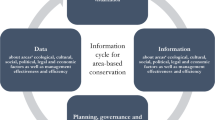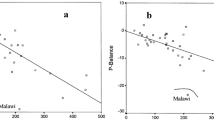Abstract
The need for understanding the factors that trigger human responses to climate change has opened inquiries on the role of indigenous and local ecological knowledge (ILK) in facilitating or constraining social adaptation processes. Answers to the question of how ILK is helping or limiting smallholders to cope with increasing disturbances to the local hydro-climatic regime remain very limited in adaptation and mitigation studies and interventions. Herein, we discuss a case study on ILK as a resource used by expert farmer-fishers (locally known as Caboclos) to cope with the increasing threats on their livelihoods and environments generated by changing flood patterns in the Amazon delta region. While expert farmer-fishers are increasingly exposed to shocks and stresses, their ILK plays a key role in mitigating impacts and in strengthening their adaptive responses that are leading to a process of incremental adaptation (PIA). We argue that ILK is the most valuable resource used by expert farmer-fishers to adapt the spatial configuration and composition of their land-/resource-use systems (agrodiversity) and their produced and managed resources (agrobiodiversity) at landscape, community and household levels. We based our findings on ILK on data recorded for over the last 30 years using detailed ethnographic methodologies and multitemporal landscape mapping. We found that the ILK of expert farmer-fishers and their “tradition of change” have facilitated the PIA to intensify a particular production system to optimize production across a broad range of flood conditions and at the same time to manage or conserve forests to produce resources and services.






Similar content being viewed by others
Notes
Noted to be adapted to both high and low saltwater conditions, they are present and at greater abundance in estuarine fishing in years with lower river discharge linked to lower rainfall somewhere upstream or locally in delta, that is, also when the influence of seawater is greater in delta.
References
Agrawal A, Perrin N (2009) Climate adaptation, local institutions and rural livelihoods. In: Adger WN, Lorenzoni I, O´Brien KL (eds) Adapting to climate change: thresholds, values, governance. Cambridge University Press, Cambridge, pp 350–367
Berkes F (1999) Sacred ecology: traditional ecological knowledge and resource management. Taylor & Francis, Philadelphia
Berkes F (2008) Sacred ecology. Routledge, New York
Berkes F (2009) Indigenous ways of knowing and the study of environmental change. J R Soc N Z 39:151–156
Berkes F, Folke C, Colding J (1998) Linking social and ecological systems: management practices and social mechanisms for building resilience. Cambridge University Press, Cambridge, New York
Berkes F, Colding J, Folke C (2000) Rediscovery of traditional ecological knowledge as adaptive management. Ecol Appl 10:1251–1262
Brazilian Institute of Geography and Statistics (IBGE) (2010) http://censo2010.ibge.gov.br/en/. Accessed 27 Jan 2016
Brondízio ES (2008) The Amazonian Caboclo and the açaí palm: forest farmers in the global market. The New York Botanical Garden Press, Bronx
Brondízio ES, Ostrom E, Young OR (2009) Connectivity and the Governance of multilevel social-ecological systems: the role of social capital. Annu Rev Environ Resour 34:253–278
Chambers R, Conway G (1992) Sustainable rural livelihoods: practical concepts for the 21st century. Institute of Development Studies, UK
Day J, Ibáñez C, Scarton F, Pont D, Hensel P, Day J, Lane R (2011) Sustainability of Mediterranean deltaic and lagoon wetlands with sea-level rise: the importance of river input. Estuaries Coasts 34:483–493
Denevan WM (1983) Adaptation, variation, and cultural geography. Prof Geogr 35:399–407
Díaz S, Quétier F, Cáceres DM, Trainor SF, Pérez-Harguindeguy N, Bret-Harte MS, Finegan B, Peña-Claros M, Poorter L (2011) Linking functional diversity and social actor strategies in a framework for interdisciplinary analysis of nature´s benefits to society. Proc Nat Acad Sci USA 108:895–902
Díaz S, Demissew S, Carabias J, Joly C, Lonsdale M, Ash N, Larigauderie A, Adhikari JR, Arico S, Báldi A, Bartuska A, Baste IA, Bilgin A, Brondízio ES, Chan KMA, Figueroa VE, Duraiappah A, Fischer M, Hill R, Koetz T, Leadley P, Lyver P, Mace GM, Martin-Lopez B, Okumura M, Pacheco D, Pascual U, Pérez ES, Reyers B, Roth E, Saito O, Scholes RJ, Sharma N, Tallis H, Thaman R, Watson R, Yahara T, Hamid ZA, Akosim C, Al-Hafedh Y, Allahverdiyev R, Amankwah E, Asah ST, Asfaw Z, Bartus G, Brooks LA, Caillaux J, Dalle G, Darnaedi D, Driver A, Erpul G, Escobar-Eyzaguirre P, Failler P, Fouda AMM, Fu B, Gundimeda H, Hashimoto S, Homer F, Lavorel S, Lichtenstein G, Mala WA, Mandivenyi W, Matczak P, Mbizvo C, Mehrdadi M, Metzger JP, Mikissa JB, Moller H, Mooney HA, Mumby P, Nagendra H, Nesshover C, Oteng-Yeboah AA, Pataki G, Roué M, Rubis J, Schultz M, Smith P, Sumaila R, Takeuchi K, Thomas S, Verma M, Yeo-Chang Y, Zlatanova D (2015a) The IPBES conceptual framework—connecting nature and people. Curr Opin Environ Sustain 14:1–16
Díaz S, Demissew S, Joly C, Lonsdale WM, Larigauderie A (2015b) A Rosetta stone for nature’s benefits to people. PLoS Biol 13(1):e1002040
Folke C, Carpenter SR, Elmqvist T, Gunderson LH, Holling CS, Walker B, Bengtsson J, Berkes F, Colding J, Danell K, Falkenmark M, Gordon L, Kasperson RE, Kautsky N, Kinzig AP, Levin S, Mäler KG, Moberg F, Ohlsson L, Olsson P, Ostrom E, Reid WV, Rockstrom J, Savenije H, Svedin U (2002) Resilience and sustainable development: building adaptive capacity in a world of transformations. Ambio 31:437–440
Ford JD, Berrang-Ford L, Paterson J (2011) A systematic review of observed climate change adaptation in developed nations. Clim Change 106:327–336
Ford JD, Vanderbilt W, Berrang-Ford L (2012) Authorship in IPCC AR5 and its implications for content: climate change and Indigenous populations in WGII. Clim Change 113:201–213
Freitas MAB, Viera ICG, Albernaz ALKM, Magalhães LLL, Lees AC (2015) Floristic impoverishment of Amazonian floodplain forests managed for açai fruit production. Fores Ecol Manag 351:20–27
Green D, Raygorodetsky G (2010) Indigenous knowledge of a changing climate. Clim Change 100:239–242
Gunderson LH, Holling CS (2002) Panarchy: understanding transformations in human and natural systems. Island Press, Washington, DC
Ipcc (2014) Climate Change 2014: impacts, adaptation, and vulnerability. Part A: Global and sectoral aspects. Contribution of Working Group II to the Fifth Assessment Report of the Intergovernmental Panel on Climate Change [Field CB, Barros VR, Dokken DJ, Mach KJ, Mastrandrea MD, Bilir TE, Chatterjee M, Ebi KL, Estrada YO, Genova RC, Girma B, Kissel ES, Levy AN, MacCracken S, Mastrandrea PR, and White LL (eds.)]. Cambridge, United Kingdom and New York, NY, USA: Cambridge University Press
Kusters K, Belcher B (2004) Forest products, livelihoods and conservation: case studies of non-timber forest product systems, vol 1-Asia. CIFOR
Larigauderie A, Mooney HA (2010) The intergovernmental science-policy platform on biodiversity and ecosystem services: moving a step closer to an IPCC-like mechanism for biodiversity. Curr Opin Environ Sustain 2:9–14
Mace GM, Norris K, Fitter AH (2012) Biodiversity and ecosystem services: a multi-layered relationship. Trends Ecol Evol 27:19–26
Mcleod E, Poulter B, Hinkel J, Reyes E, Salm R (2010) Sea-level rise impact models and environmental conservation: a review of models and their applications. Ocean Coast Manag 53:507–517
Nelson DR, Adger WN, Brown K (2007) Adaptation to environmental change: contributions of a resilience framework. Annu Rev Environ Resour 32(1):395
Olsson P, Folke C, Berkes F (2004) Adaptive comanagement for building resilience in social–ecological systems. Environ Manage 34:75–90
Pinedo-Vasquez M, Sears RR (2011) Varzea forests: multifunctionality as a resource for conservation and sustainable use of biodiversity. Springer, In The Amazon Várzea, pp 187–206
Pinedo-Vasquez M, Pasqualle JB, Torres DDC, Coffey K (2002) A tradition of change: the dynamic relationship between biodiversity and society in sector Muyuy, Peru. Environ Sci Policy 5:43–53
Raygorodetsky G (2011) Why traditional knowledge holds the key to climate change. United Nations University. Abrufbar unter: http://unu.edu/articles/global-change-sustainable-development/why-traditional-knowledge-holds-the-key-to-climate-change (Zugriff am 19)
Redford KH, Padoch C (1992) Conservation of neotropical forests: working from traditional resource use. Columbia University Press
Salick J, Ross N (2009) Traditional peoples and climate change Introduction. Glob Environ Chang Hum Policy Dimens 19:137–139
Spangenberg J, Gorg C, Truongd D, Bustamente J, Settele J (2014) Provision of Ecosystem services is determined by human agency, not ecosystem functions. four case studies. Int J Biodivers Sci Ecosyst Serv Manag 10:40–53
Syvitski JP (2008) Deltas at risk. Sustain Sci 3:23–32
Syvitski JP, Kettner AJ, Overeem I, Hutton EW, Hannon MT, Brakenridge GR, Day J, Vörösmarty C, Saito Y, Giosan L (2009) Sinking deltas due to human activities. Nat Geosci 2:681–686
Tengö M, Brondizio ES, Elmqvist T, Malmer P, Spierenburg M (2014) Connecting diverse knowledge systems for enhanced ecosystem governance: the multiple evidence base approach. Ambio 43:579–591
Turner NJ, Clifton H (2009) “It’s so different today”: climate change and indigenous lifeways in British Columbia, Canada. Glob Environ Change Hum Policy Dimens 19:180–190
Vogt ND, Pinedo-Vasquez M, Brondízio ES, Almeida O, Rivero S (2015) Forest transitions in mosaic landscapes: smallholder’s flexibility in land-resource use decisions and livelihood strategies from WWII to the present in the Amazon Estuary. Soc Nat Res
Acknowledgments
This paper is based on work supported by the International Development and Research Center of Canada, for the project Socio-Cultural Adaptations of Caboclos in the Amazon Estuary of Brazil to Extreme Tidal Events, the National Science Foundation for the project Global Markets, Regional Landscapes, and Household Decisions: Modeling the History of Transformation of the Amazon Estuary [Award: 0527578] and the project Deltas: Catalyzing Action Towards Sustainability of Deltaic Systems with an Integrated Modeling Framework for Risk Assessment [Award: 1342898]. We received indispensable aid from many institutions and individuals in Brazil. We particularly would like to thank our sponsors in Brazil, the Núcleo de Altos Estudos Amazônicos of the Universidade Federal do Pará. Eduardo Brondízio would like to thank the support of Indiana University and of the Institut d’etudes avances-Paris. Nathan Vogt would like to thank the National Institute for Space Research and the São Paulo Research Foundation (FAPESP) for their support. Much of the field data presented were gathered with the help of our long-term skilled field researchers; among them, we would like to especially acknowledge the work of Andrea Siqueira, Valois Delcastagne, Socorro Tavares and Marcio Matos in Brazil. Finally, our greatest debts are owed to the many rural and urban families who have kindly shared their ideas and information with us over many years in Ponta de Pedras, Mazagão, Abaetatuba and Ipixuna Miranda in Brazil.
Author information
Authors and Affiliations
Corresponding author
Additional information
Handled by Sylvia Szabo, University of Southampton, Southampton, United Kingdom.
Rights and permissions
About this article
Cite this article
Vogt, N., Pinedo-Vasquez, M., Brondízio, E.S. et al. Local ecological knowledge and incremental adaptation to changing flood patterns in the Amazon delta. Sustain Sci 11, 611–623 (2016). https://doi.org/10.1007/s11625-015-0352-2
Received:
Accepted:
Published:
Issue Date:
DOI: https://doi.org/10.1007/s11625-015-0352-2




